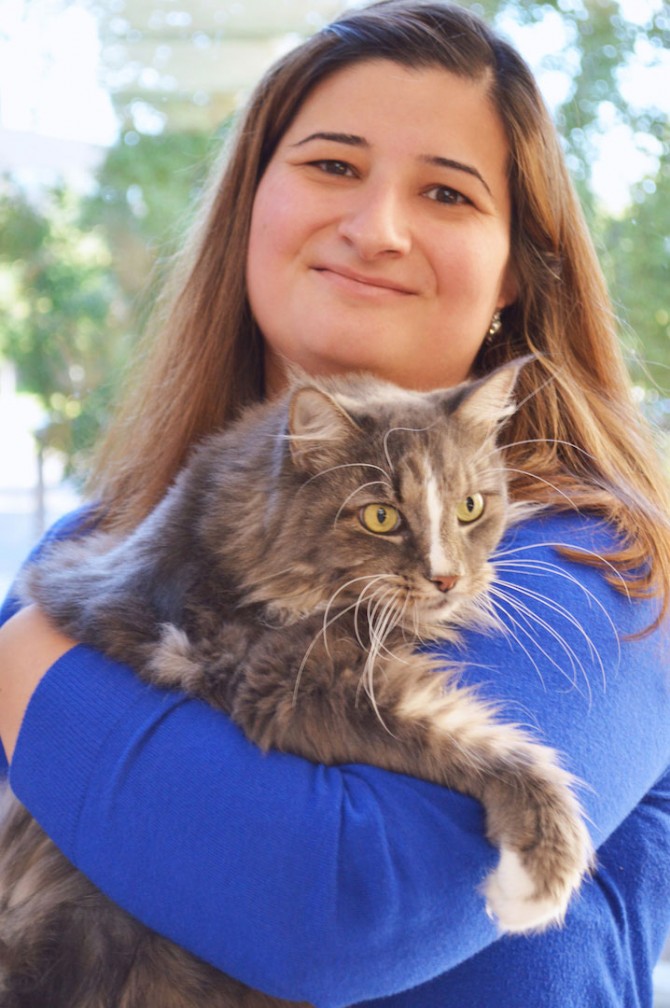Veterinarian leads implementation of international biobank standards
By Melanie Greaver Cordova
After malfunctions at two fertility clinics resulted in the destruction of the frozen eggs and embryos of approximately 1,500 patients, the International Society for Biological and Environmental Repositories (ISBER) deployed their taskforce to accelerate the review of a new international biobanking standard to prevent such malfunctions from ever happening again. Dr. Marta Castelhano, senior research associate with the College of Veterinary Medicine and director of the Cornell Veterinary Biobank, is the taskforce’s expert in nonhuman biobanking.
“Everything about biobanking has to do with our investment in the future, but unfortunately, there were no standardized requirements to protect this investment,” Castelhano said of the malfunctions at the Pacific Fertility Center in San Francisco and the University Hospitals Cleveland Medical Center. Biobanks store biological samples, some of which are made available to researchers who otherwise would not have had access to them.
Best-practice documents existed, but a worldwide industrial and commercial standard had yet to be approved. In August, with the input from this taskforce, the International Organization for Standardization (ISO) released a document that is the baseline for biobanks worldwide that would address the gap.
Castelhano’s role on the task force put her at the forefront of the community’s drive for standardization. The National Institute of Standards and Technology invited her to represent the United States as a technical expert and delegate for ISO, where she’ll develop an implementation document for the biobanking standard that allows organizations to incorporate the requirements into their day-to-day practices. She’ll also be working on an ISO document specific to nonhuman biobanks. Castelhano will represent the U.S. position by developing, reviewing and voting on content with delegates from the other member countries.
“Dr. Castelhano’s attendance and participation at a global level will contribute to the acceptance and issuance of key standards, and will not only serve the Cornell Veterinary Biobank, but ultimately countless biobanks worldwide,” said Dr. Kristy Richards, chair of the Cornell Veterinary Biobank’s governance committee and associate professor in the Department of Biomedical Sciences.
Castelhano is collaborating to achieve accreditation for Cornell’s biobank under the new biobanking standard with Denise Archer, quality assurance manager with the Animal Health Diagnostic Center. Archer also serves as an assessor for the American Association for Laboratory Accreditation and has performed assessments across the country to determine whether laboratories meet managerial and technical requirements.
“She knows exactly what it means to implement a quality management system for agreement with an ISO standard,” said Castelhano.
“There are only a few big players when it comes to animal biobanks, and of those, Cornell is probably 80 percent ahead of the others on the way to meeting biobank accreditation requirements,” said Archer. “Dr. Castelhano and the biobank are ahead of the curve.”
“Every time we take a sample, we make a commitment to the client that we’ll put that sample to good use and that their donation will benefit animals and people. It might help your son, your daughter. It’s why the standards are so important and why we follow them so precisely, to fulfill this mission,” said Castelhano.
Melanie Greaver Cordova is a staff writer with the College of Veterinary Medicine.
Media Contact
Get Cornell news delivered right to your inbox.
Subscribe

